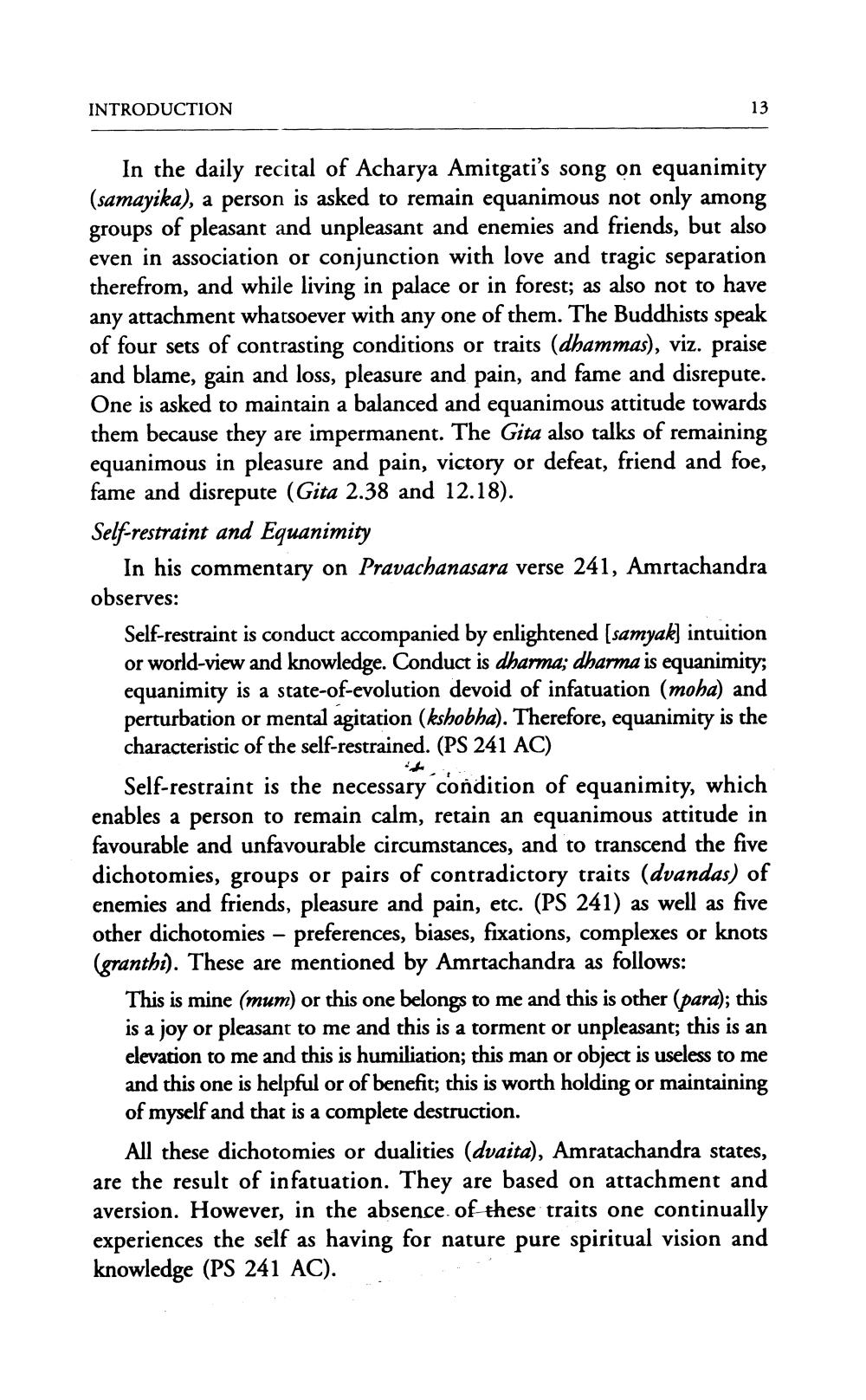________________
INTRODUCTION
13
In the daily recital of Acharya Amitgati's song on equanimity (samayika), a person is asked to remain equanimous not only among groups of pleasant and unpleasant and enemies and friends, but also even in association or conjunction with love and tragic separation therefrom, and while living in palace or in forest; as also not to have any attachment whatsoever with any one of them. The Buddhists speak of four sets of contrasting conditions or traits (dhammas), viz. praise and blame, gain and loss, pleasure and pain, and fame and disrepute. One is asked to maintain a balanced and equanimous attitude towards them because they are impermanent. The Gita also talks of remaining equanimous in pleasure and pain, victory or defeat, friend and foe, fame and disrepute (Gita 2.38 and 12.18).
Self-restraint and Equanimity
In his commentary on Pravachanasara verse 241, Amrtachandra observes:
Self-restraint is conduct accompanied by enlightened [samyak] intuition or world-view and knowledge. Conduct is dharma; dharma is equanimity; equanimity is a state-of-evolution devoid of infatuation (moha) and perturbation or mental agitation (kshobha). Therefore, equanimity is the characteristic of the self-restrained. (PS 241 AC)
+4
Self-restraint is the necessary condition of equanimity, which enables a person to remain calm, retain an equanimous attitude in favourable and unfavourable circumstances, and to transcend the five dichotomies, groups or pairs of contradictory traits (dvandas) of enemies and friends, pleasure and pain, etc. (PS 241) as well as five other dichotomies - preferences, biases, fixations, complexes or knots (granthi). These are mentioned by Amrtachandra as follows:
This is mine (mum) or this one belongs to me and this is other (para); this is a joy or pleasant to me and this is a torment or unpleasant; this is an elevation to me and this is humiliation; this man or object is useless to me and this one is helpful or of benefit; this is worth holding or maintaining of myself and that is a complete destruction.
All these dichotomies or dualities (dvaita), Amratachandra states, are the result of infatuation. They are based on attachment and aversion. However, in the absence of these traits one continually experiences the self as having for nature pure spiritual vision and knowledge (PS 241 AC).




